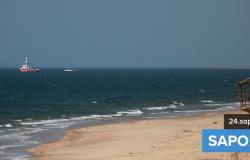Praia Grande City Council continues to carry out nebulization work throughout the city, popularly known as fumigation, with the spraying machine attached to the car. Starting this Tuesday (2), the action takes place in Bairro Guilhermina. In case of rain, the activity is suspended and rescheduled for the following day.
Fogging aims to reduce adult mosquitoes that transmit the disease. This action reinforces the measures taken by the City, which has been in public health emergency situation for dengue. Since then, the Municipality has strengthened and expanded all necessary measures to combat the Aedes Aegypti mosquito, which transmits arboviruses (diseases caused by the arbovirus – dengue, zika and chikungunya viruses).
Fogging activities with the spraying machine attached to the car take place in each neighborhood for around four to five weeks. The location is divided between four and five sections and, each week, a different section receives the smoke car. And to reinforce the action, the vehicle passes three times in each section.
Hours and care – Fogging takes place from 5:30 pm. The Municipal Department of Public Health (Sesap) asks the population to keep doors and windows open so that the product can have the expected effect. “We also ask that residents stay inside their homes and not let children or animals follow the vehicle during fogging”, advises the director of the Environmental Health Division, Maria Fernanda Gonçalves.
Other neighborhoods – The application of this type of nebulization in large areas occurs in neighborhoods that have more notifications of suspected and confirmed cases. Initially, the Tupi neighborhood was included. And after the work in Bairro Guilhermina is completed, the nebulization will continue to other locations, to be announced later by Praia Grande City Hall on its official channels. “The next neighborhood to receive the service depends on the number of positive cases and the analysis of other data, which are always evaluated one week before the car is released for a given neighborhood”, explains Maria Fernanda.
Emergency – Praia Grande has been, since March 8th, in public health emergency situation for dengue, for a period of 180 days. The decision follows the decree issued by the Government of the State of São Paulo on the 5th and allows the adoption of all necessary administrative measures for the immediate response by the Municipal Administration, aiming to combat urban arboviruses.
These include: hiring temporary staff, if necessary; request for personnel and equipment from other departments to develop joint actions; carrying out visits to all public and private properties; forced entry into public and private properties, in the case of abandonment, absence or refusal of a person who could allow access by an identified public agent; between others.
The Center for Combating Urban Arboviruses of Praia Grande (CEAU-PG) was also established. The group brings together several departments, health institutions and public bodies to intensify educational activities among the population.
Other actions – Throughout the year, agents to combat endemic diseases are traveling through neighborhoods and visiting homes to block breeding sites, in addition to guiding the population to prevent the emergence of places suitable for the breeding of disease vector larvae.
Works and strategic points are also being visited, including cemeteries, vehicle dismantling, tire repair shops and material recycling sites. The nebulization work in areas with confirmed cases continues to be carried out by the Municipality, following the criteria recommended by the Ministry of Health. Educational campaigns in health units and municipal schools, through the Information, Education and Communication (IEC), from the Environmental Health Division.
Another initiative that continues to be developed is the use of ovitrap traps, created to capture the Aedes Aegypti mosquito. Installed in places of greatest risk, the traps remain under monitoring and serve to indicate the types of mosquitoes that are flying over that location, expanding the possibilities for surveillance and action by Sesap technicians.
Do your part – The population also needs to do their part in the war against the Aedes Aegypti mosquito, as more than 90% of mosquito outbreaks are in homes. See how:
– Keep the water tank tightly closed and place a screen on the water tank thief;
– Remove leaves, branches and anything that could prevent water from flowing through the gutters;
– Eliminate plant potted plates or add sand to the edge of the plate;
– Keep drains screened and clean by adding salt and chlorine;
– Keep cans and bottles upside down and tires in covered places;
– Always maintain swimming pools or fountains using the appropriate chemical products.
Another tip is to dispose of old tires and other items that accumulate water in one of the Ecopoints of the Municipality. The addresses can be found in the Service Letter by typing Ecopoints in the search engine.
Complaint – If residents wish to make a report about dengue outbreaks, they can contact the SUS Ombudsman (telephone numbers 0800-773-3020 / 3472-9764, e-mail: [email protected] or in person at Rua João de Souza, s/n°, Mirim, Monday to Friday, from 9am to 4pm) so that the Environmental Health team can be called and can inspect the house.
The teams also release fish of the Lebiste species, known as Barrigudinho, in large areas with still water. This fish eats the larvae and eggs of Aedes Aegypti and other mosquitoes.
Symptoms – In case of symptoms such as high fever, body and joint pain, pain behind the eyes, malaise, lack of appetite, headache and red spots on the body, the person should contact the Usafa with which they are registered.
Tags: Municipality Praia Grande
--




